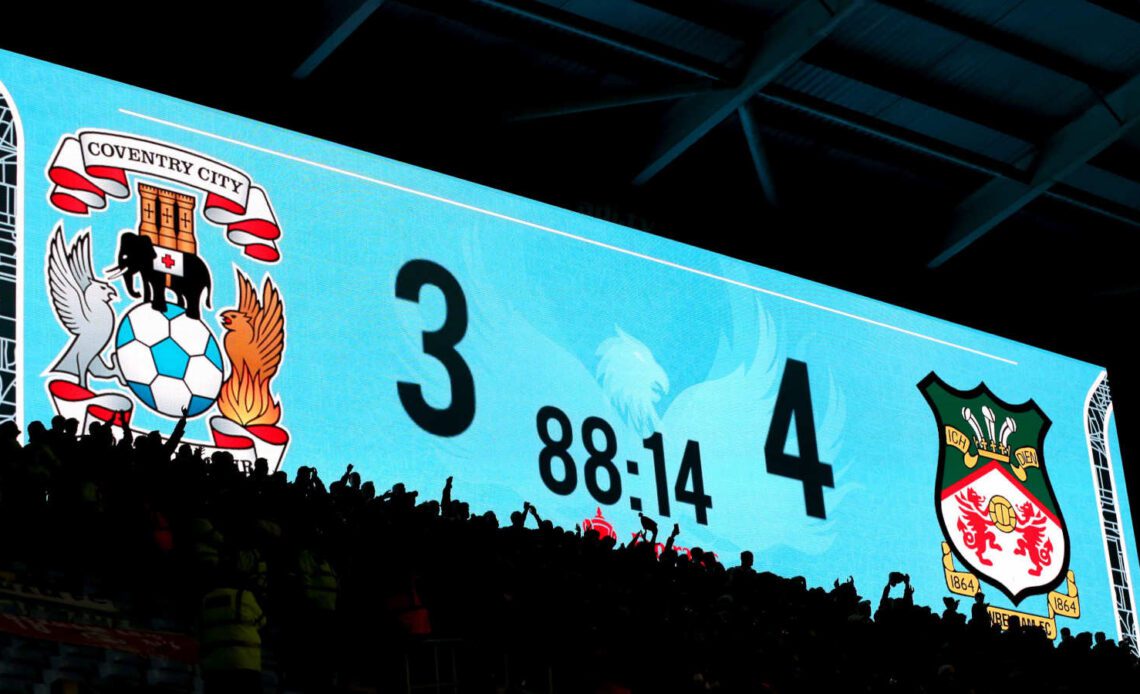Wrexham made headlines around the world after beating Coventry in the FA Cup, but the story of their 21st century so far hasn’t been especially happy.
With an hour played at The Coventry Building Society Arena on Saturday evening, Wrexham were leading Coventry City 4-1 and playing against ten men following the sending-off of Jonathan Panzo for the handball that had led to the penalty-kick from which they’d extended their lead. Thirty minutes to play with a one player advantage and a three-goal lead should have been pretty straightforward, shouldn’t it?
Well, not quite. Viktor Gyokeres pulled one goal back for Coventry with a little over 20 minutes to play. Seven minutes later, Kasey Palmer scored their third. They hit the post. There were goalmouth scrambles. Over on ESPN, who were streaming the game in the USA, the lights went out altogether with a minute to play.
But eventually, after what felt like an eternal period of stoppage-time, the whistle blew and Wrexham had knocked Coventry City out of the FA Cup. Not for the first time in their history, they’d caused a pretty huge surprise in this competition.
For the last decade and a half, Wrexham have been a non-league football club, having been relegated in 2008 after a Football League stay that had lasted the previous 87 years. Despite the fact that automatic promotion and relegation between the League and the non-league game had been in place for two decades by 2008, that loss of prestige, that loss of status, still hurt.
This would be the case at any football club with a lengthy history in the Football League, but when the town has already been in steady decline for decades to the almost blanket indifference of the outside world, it hurts all the more.
The crumb of a silver lining that always accompanies relegation is the hope that playing at a slightly lower level may at least, after years of struggle, provide a better chance of winning more games, but this didn’t happen for Wrexham and the reasons for this pre-dated falling through the trapdoor.
Alex Hamilton and Mark Guterman had taken ownership of the club in March 2002 with little interest in its wellbeing. For Hamilton and Guterman, there was a clear end goal that didn’t even really involve a football club still existing.
Three months after taking ownership, they quietly transferred ownership of The Racecourse Ground, the oldest international football stadium in the world, into the name of Hamilton’s company. In June 2004, the…
Click Here to Read the Full Original Article at Football365…

